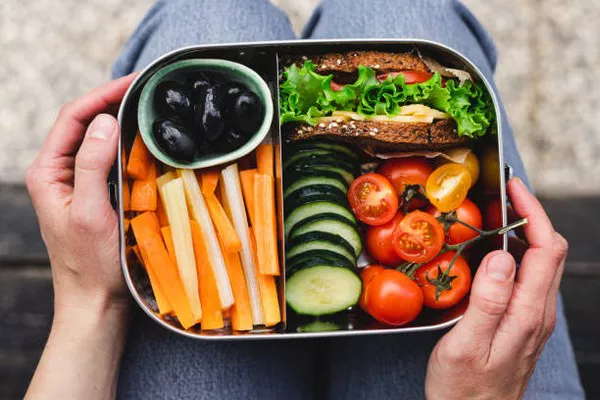A recent study published in Obesity and Science Practice unveils an innovative intervention aimed at reducing the intake of ultra-processed foods (UPFs)—products like chips, candy, and other mass-produced, packaged foods that contain little to no naturally occurring ingredients. UPFs are known to be strongly linked with an increased risk of diseases and early death, yet existing dietary programs rarely address them directly. Researchers from Drexel University’s College of Arts and Sciences have now designed a two-month intervention that tackles the harmful effects of UPFs while offering practical solutions to help individuals reduce their consumption.
Background: The Problem with Ultra-Processed Foods (UPFs)
Ultra-processed foods are products that undergo extensive manufacturing processes, often with the addition of preservatives, sweeteners, and other artificial ingredients. These foods are typically energy-dense but nutrient-poor, offering little nutritional value and contributing to unhealthy dietary patterns. UPFs have been linked to a variety of chronic health issues, including obesity, heart disease, diabetes, and even cancer.
Despite these risks, most dietary programs focus on broader goals like weight loss or adherence to general nutrition guidelines, with little focus on reducing UPF consumption. In fact, the U.S. dietary guidelines don’t even mention UPFs by name, making it difficult for individuals to understand the specific impact of these foods on their health.
The Intervention: A Multifaceted Approach
The Drexel University research team’s intervention targeted the unique challenges of UPF consumption, especially the addictive nature of many ultra-processed products. The program combined several tactics to address both the physiological and psychological aspects of reducing UPF intake:
Education on UPFs: Participants learned about the harmful effects of UPFs and how to identify them in their diets.
Mindfulness and Acceptance-Based Strategies: These techniques helped participants cope with cravings and the emotional triggers associated with UPF consumption.
Meal Planning: Participants worked one-on-one with nutrition coaches to create personalized meal plans, focusing on healthier, whole foods.
Improving the Home Food Environment: Household members were involved in the intervention to support healthy changes in the home.
Financial Support: Participants received a $100 grocery store gift card to help offset the cost of healthier foods like fresh fruits and vegetables, which are often more expensive than processed alternatives.
Study Design and Methodology
The intervention was tested over two months with 14 adults who had overweight or obesity and consumed UPFs regularly. On average, participants were eating two UPF items per day. The intervention included weekly group sessions, one-on-one meetings, and activities. To assess dietary changes, participants used the Automated Self-Administered 24-Hour Dietary Assessment Tool (ASA-24), a method that tracked their food intake, calorie consumption, and macronutrient intake.
Before and after the intervention, participants reported everything they ate during two weekdays and one weekend day. The research team then analyzed the data to identify whether participants had reduced their UPF intake, along with changes in their calorie consumption, sugar intake, saturated fat, sodium, and fruit and vegetable consumption.
Key Findings: Significant Health Improvements
Despite the small sample size, the results of this intervention were very promising:
Reduction in UPF Intake: Participants successfully reduced their UPF intake by nearly 50%, both in terms of calories and the total number of UPFs consumed.
Calorie Reduction: On average, participants reduced their daily calorie intake by over 600 calories.
Improvement in Nutrient Intake:
Sugar Consumption: A 50% reduction in sugar intake.
Saturated Fat: A 37% decrease in saturated fat consumption.
Sodium: A 28% decline in sodium consumption.
Weight Loss: Participants reported an average weight loss of 7.7 pounds over the course of the intervention.
Interestingly, while participants reduced their intake of UPFs and unhealthy nutrients, there was no significant increase in their fruit and vegetable consumption, suggesting that further strategies may be needed to encourage more balanced and holistic dietary changes.
Participant Feedback: Positive Impact on Mood and Energy
The feedback from participants was overwhelmingly positive. Many participants reported feeling better overall, with improved mood and higher energy levels. This suggests that reducing UPF intake can not only improve physical health but also contribute to better mental well-being.
Conclusion: A Promising Strategy to Tackle UPF Consumption
This study’s findings suggest that reducing UPF intake is achievable when individuals are provided with the right tools and support. The combination of education, mindfulness techniques, personalized meal planning, and financial assistance proved effective in helping participants significantly reduce their consumption of ultra-processed foods.
Dr. Hagerman, the lead researcher, emphasized that these results are encouraging, particularly because they show that people can make meaningful dietary changes in as little as eight weeks. The health improvements, including weight loss, reduced intake of harmful nutrients, and enhanced mood, are a testament to the potential benefits of such interventions.
Future Directions
The research team plans to expand their study to a larger sample size to confirm the findings and further refine the intervention. They also plan to test the program’s effectiveness on different populations and assess the specific impact of each component of the intervention. The goal is to develop a more comprehensive approach that can be scaled up to help more individuals reduce their dependence on UPFs and improve their overall health.
In the meantime, these initial results suggest that with the right support, individuals can significantly reduce their intake of ultra-processed foods, leading to substantial health benefits in a relatively short period of time.
You Might Be Interested In:
-
Infant Exposure to Herpes Virus May Cause Memory Problems Later in Life
-
Lower Vitamin B12 Levels Could Impact Brain Function in Older Adults
-
Do Prenatal Antibiotics Weaken Breast Milk Immunity? A New Study Aims to Find Out

